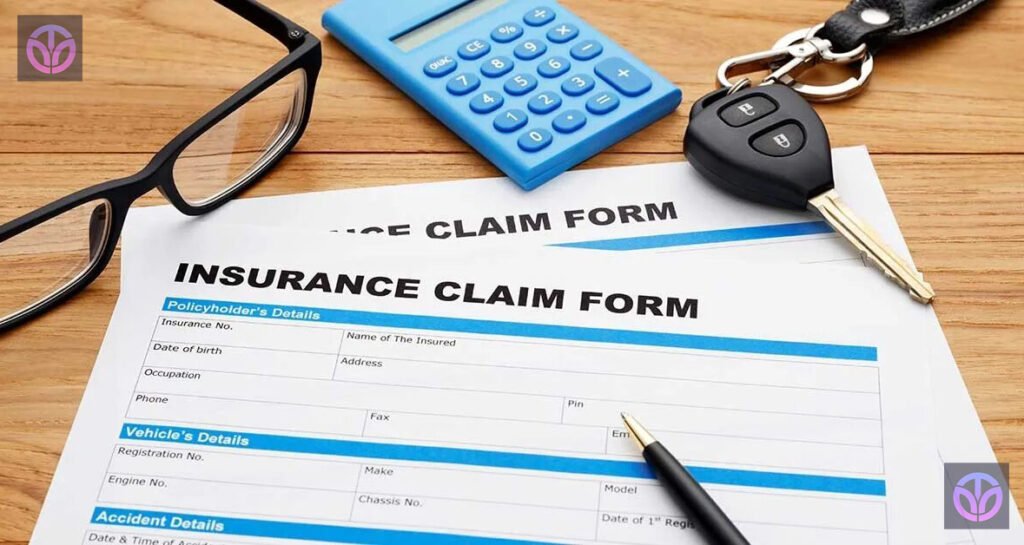Filing an insurance claim can be a daunting process, but it’s essential for recovering your losses after an unexpected event. Whether it’s an auto accident, property damage, or a health issue, knowing how to navigate the claims process is crucial. This comprehensive guide will walk you through each step, ensuring you understand what to do and what to expect when filing an insurance claim.
Step 1: Understand Your Policy
Before filing a claim, it’s essential to understand your insurance policy thoroughly. Review the following key components:
- Coverage: Know what is covered and what is excluded. This includes understanding the types of damages or losses your policy addresses.
- Deductible: The amount you must pay out-of-pocket before your insurance coverage kicks in.
- Policy Limits: The maximum amount your insurance company will pay for a covered loss.
- Claim Filing Procedure: Instructions provided by your insurer on how to file a claim, including any specific forms or documentation required.
Step 2: Document the Damage or Loss
Proper documentation is critical when filing an insurance claim. Follow these steps to ensure you have all necessary information:
- Take Photos and Videos: Capture detailed images and videos of the damage or loss. This visual evidence can be crucial in supporting your claim.
- Make a List: Write a detailed list of damaged or lost items, including descriptions, purchase dates, and approximate values.
- Keep Receipts: Gather any receipts, invoices, or proof of purchase for the damaged or lost items.
Step 3: Notify Your Insurance Company
Contact your insurance company as soon as possible to inform them of the incident and your intention to file a claim. Most insurers have a specific timeframe within which you must report a claim, so timely notification is crucial. You can typically notify your insurer through the following methods:
- Phone Call: Call the customer service or claims department.
- Online Portal: Many insurers offer online claim filing through their website or mobile app.
- In Person: Visit your insurance agent’s office if you prefer face-to-face interaction.
Step 4: Fill Out the Claim Form
Once you’ve notified your insurer, you’ll need to fill out a claim form. This form can usually be completed online or mailed in. Ensure you provide accurate and detailed information, including:
- Policy Number: Your insurance policy number.
- Date and Time of Incident: When the damage or loss occurred.
- Description of Incident: A detailed explanation of what happened.
- Documentation: Attach photos, videos, receipts, and any other relevant evidence.
Step 5: Cooperate with the Claims Adjuster
After you’ve submitted your claim, an insurance adjuster will be assigned to your case. The adjuster’s job is to investigate the claim, assess the damage, and determine the payout. Be prepared to cooperate fully:
- Provide Additional Information: Be ready to supply any additional documentation or information the adjuster requests.
- Meet for an Inspection: The adjuster may need to inspect the damage in person. Schedule this meeting as soon as possible.
- Answer Questions: Respond promptly and accurately to any questions the adjuster asks.
Step 6: Review the Settlement Offer
Once the adjuster completes their assessment, your insurer will make a settlement offer. Review this offer carefully:
- Compare to Your Documentation: Ensure the offer matches the documented value of your loss or damage.
- Understand Your Rights: Know your rights under your policy and state insurance laws. You may have the right to negotiate or dispute the offer if it seems inadequate.
Step 7: Accept the Settlement or Negotiate
If you agree with the settlement offer, you can accept it and proceed with the payout process. However, if you believe the offer is too low, you have the right to negotiate:
- Provide Evidence: Present any additional evidence that supports your case for a higher payout.
- Get Estimates: Obtain independent estimates for repairs or replacements to bolster your argument.
- Seek Mediation or Arbitration: If negotiations stall, consider mediation or arbitration to resolve the dispute.
Step 8: Receive Your Payout
Once you’ve accepted the settlement offer, your insurer will process your payout. Depending on the nature of your claim, the payout may be made directly to you or to a service provider (e.g., a repair shop). Keep track of all correspondence and documentation related to the payout.
Step 9: Repair and Replace
Use the insurance payout to repair or replace the damaged or lost items. Ensure you:
- Choose Reputable Service Providers: Select qualified and reputable contractors or service providers for repairs.
- Keep Records: Maintain detailed records of all repair work, including receipts and invoices.
Step 10: Follow Up
After your claim is settled and repairs are completed, follow up with your insurer to confirm that everything is in order:
- Check for Errors: Review all documentation for any errors or discrepancies.
- Update Your Policy: Notify your insurer of any changes in your property or circumstances that may affect your coverage.
Tips for a Smooth Claims Process
- Be Proactive: Contact your insurer immediately after a loss or damage occurs.
- Stay Organized: Keep all claim-related documents and correspondence in one place.
- Communicate Clearly: Maintain clear and open communication with your insurer and claims adjuster.
- Understand Your Policy: Know the details of your policy, including coverage limits and exclusions.
Common Types of Insurance Claims
Understanding the specific processes for different types of insurance claims can also help streamline the filing process. Here are some common types of claims:

Auto Insurance Claims
Auto insurance claims are filed after incidents like car accidents, theft, or damage. Follow these steps:
- Ensure Safety: After an accident, ensure everyone is safe and call emergency services if needed.
- Exchange Information: Collect information from other parties involved, including names, contact details, and insurance information.
- Document the Scene: Take photos of the accident scene, vehicle damage, and any relevant road conditions or traffic signs.
- File a Police Report: Report the accident to the police and obtain a copy of the police report.
- Notify Your Insurer: Contact your auto insurance company to report the incident and begin the claims process.
Homeowners Insurance Claims
Homeowners insurance claims cover damages to your home and personal property due to events like fires, storms, or theft. Follow these steps:
- Ensure Safety: Evacuate the premises if necessary and ensure the safety of all occupants.
- Document the Damage: Take photos and videos of the damage to your home and belongings.
- Secure the Property: Take steps to prevent further damage, such as covering broken windows or leaking roofs.
- Notify Your Insurer: Contact your homeowners insurance company to report the damage and start the claims process.
- Prepare for Inspection: Be ready for the adjuster’s inspection and provide access to all damaged areas.
Health Insurance Claims
Health insurance claims are filed for medical expenses incurred due to illness or injury. Follow these steps:
- Understand Your Coverage: Know what medical services and treatments are covered under your health insurance plan.
- Collect Medical Records: Gather all relevant medical records, bills, and receipts.
- File Claims Promptly: Submit your claims as soon as possible after receiving medical care.
- Verify Provider Information: Ensure that your healthcare providers are in-network if required by your plan.
- Track Claim Status: Monitor the status of your claims and follow up with your insurer if there are delays or issues.
Conclusion
Filing an insurance claim doesn’t have to be a stressful experience. By understanding your policy, documenting the damage or loss, and following the proper procedures, you can ensure a smooth and efficient claims process. Remember to stay organized, communicate clearly, and advocate for yourself if necessary. With this step-by-step guide, you’ll be well-prepared to navigate the insurance claim process and recover from any unexpected events.
Frequently Asked Questions (FAQs)
1. What is an insurance claim?
An insurance claim is a formal request made by a policyholder to their insurance company for compensation or coverage for a loss or damage covered under their policy. This could include auto accidents, property damage, health expenses, and more.
2. When should I file an insurance claim?
You should file an insurance claim as soon as possible after the loss or damage occurs. Prompt filing helps ensure your claim is processed quickly and reduces the risk of delays or complications.
3. What information do I need to file an insurance claim?
To file an insurance claim, you typically need the following information:
- Your insurance policy number
- Date and time of the incident
- Detailed description of the incident
- Photos, videos, and other documentation of the damage or loss
- Receipts or proof of purchase for damaged or lost items
4. How long does it take to process an insurance claim?
The time it takes to process an insurance claim varies depending on the type of claim and the insurance company. Simple claims may be processed within a few days, while more complex claims can take weeks or even months.
5. What is a deductible?
A deductible is the amount you must pay out-of-pocket before your insurance coverage kicks in. For example, if your deductible is $500 and your claim is for $2,000, you will pay $500, and your insurance company will cover the remaining $1,500.
6. What if I disagree with the insurance adjuster’s assessment?
If you disagree with the insurance adjuster’s assessment or the settlement offer, you have the right to negotiate. Provide additional evidence, obtain independent estimates, and consider mediation or arbitration if necessary.
7. Can my insurance company deny my claim?
Yes, an insurance company can deny your claim if it believes the damage or loss is not covered under your policy, if the claim was filed late, or if there is insufficient documentation. Always review your policy and provide thorough documentation to support your claim.
8. What should I do if my claim is denied?
If your claim is denied, you can:
- Request a detailed explanation for the denial
- Review your policy and compare it to the denial reasons
- Provide additional evidence or documentation
- Appeal the denial through your insurer’s appeal process
- Seek legal advice if necessary
9. How can I speed up the insurance claim process?
To speed up the insurance claim process, you can:
- File your claim promptly
- Provide thorough and accurate documentation
- Cooperate fully with the insurance adjuster
- Follow up regularly with your insurance company
10. Can I file multiple insurance claims?
Yes, you can file multiple insurance claims, but keep in mind that frequent claims may result in higher premiums or difficulty renewing your policy. Always weigh the benefits of filing a claim against the potential impact on your insurance costs.
11. Do I need a lawyer to file an insurance claim?
Most insurance claims can be handled without a lawyer. However, if your claim is complex, involves significant amounts of money, or if you encounter difficulties with your insurance company, seeking legal advice may be beneficial.
12. What types of damages are typically covered by homeowners insurance?
Homeowners insurance typically covers:
- Damage to your home from fire, storms, theft, and vandalism
- Personal property damage or loss
- Liability for injuries that occur on your property
- Additional living expenses if you need temporary housing due to covered damage
13. What should I do immediately after an auto accident?
After an auto accident, you should:
- Ensure safety and call emergency services if needed
- Exchange information with other parties involved
- Document the scene with photos and videos
- File a police report
- Notify your auto insurance company to begin the claims process
14. How do I track the status of my insurance claim?
You can track the status of your insurance claim by:
- Contacting your insurance company’s claims department
- Using your insurer’s online portal or mobile app
- Following up with your insurance adjuster for updates
15. What is an insurance adjuster?
An insurance adjuster is a professional who investigates insurance claims, assesses the damage or loss, and determines the payout amount. Adjusters can be employed by the insurance company or be independent contractors.


